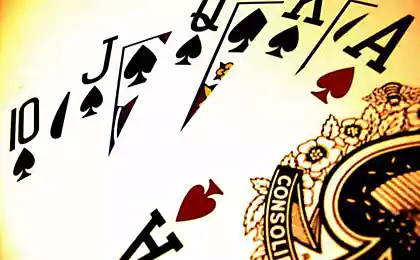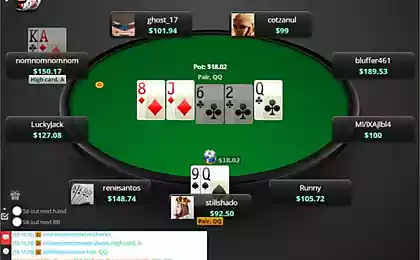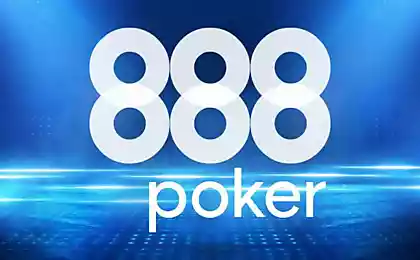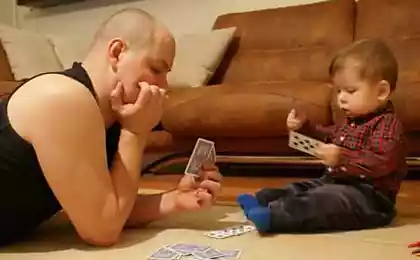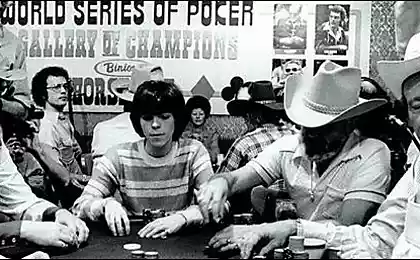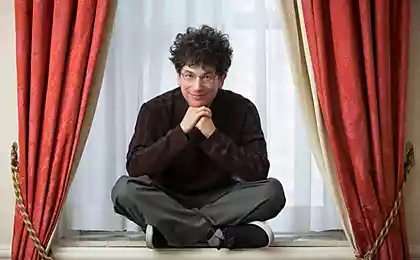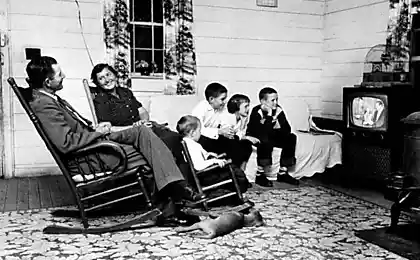1079
Poker and life
This question was asked on the Quora resource and received quite a lot of feedback in the form of personal stories of players. We decided to publish a story that became the most popular among the 16 published, because it provides a lot of useful information about poker as a profession.
The answer is professional poker player Michael Shinzaki.
Playing poker is like a rollercoaster.
I played poker professionally for about 7 years. Of course, that’s not the only thing I’ve been doing all these years. During that time, I earned a bachelor’s degree, traveled to 45 countries, worked on my book, consulted several online startups, but poker has always been a major source of income. At that time, I experienced many ups and downs, both materially and morally. Poker has helped me get a lot of life experience in a fairly short period of time, including quite impractical moments for a 20-year-old.
When money begins to fall into your hands, everything seems possible.
I have seen the emotions and feelings of the players change at the poker table. I have often noticed how at different times I myself was in the seventh heaven of happiness, then in complete despondency. I saw tears of joy, and I also saw people on the brink of poverty start paying six-figure sums in taxes. I've seen people collapse and go into huge debt. Playing poker is like a roller coaster. It makes you experience both excitement and depression. Poker shows off the best and worst in every player at the table.
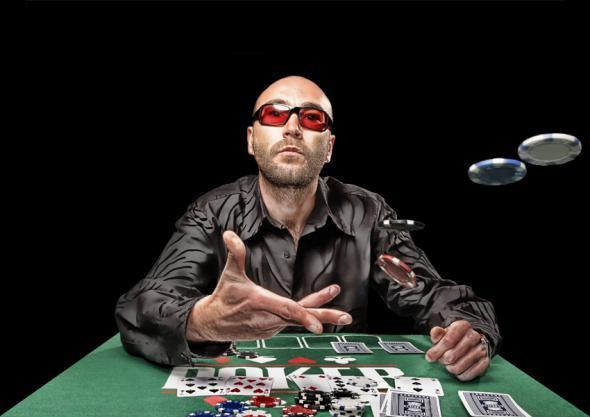
Poker is a strange profession
This is similar to the process of turning water into wine. There's no set salary here, you can't just successfully get an interview and get off to work on Monday. You will need a huge amount of work (some foundation) to at least try to turn this activity into a source of income.
A novice poker player can be unsuccessful for a long time (or even remain so forever) until he makes some progress. The level of difficulty of the game is also very variable, and this process does not always have a time dependence. You can earn a year’s worth in just a few hours (I’ve done it many times), or you can play a month and stay in the red (and this has happened to me many times).
At first, it was just a game.
When I started playing poker, I didn’t think about making it a profession. The game is meant to be social and when I was 18 it was very interesting and exciting. Poker is intriguing. I enjoyed the competition and creativity I needed in the game. It is like polymath or chess, but with additional elements. I loved the sense of celebration, I loved intellectual games. I even loved moments of despair when you feel stuck and spend hours thinking about strategy. For me, it was akin to athletics competitions, only without physical exertion.
Next, more.
Eventually, after a series of losses that forced me to play at the lowest stakes online, I began to analyze my mistakes and improve my playing skills. I started reading poker strategy books, watching games on ESPN to see where, when and why I was losing. You may think of yourself as a genius, but for every such genius, there are thousands of other players discussing the strategy of the game for 10 hours a day.
In poker you have to constantly adapt. You can’t get a patent and then just make a profit for the rest of your life. Remember, when money is at stake, your adversaries begin to evolve very quickly.
It takes time.
After a few $100 bets from my dad’s credit card and many sleepless nights at the game, I suddenly realized I was making progress.
Over time, you begin to notice what worked and what didn’t, pay attention to the game and tactics of your opponents, identify repetitive situations and distinguish between the approaches in each player’s game.
Poker is not always seen as a reality.
Sometimes it seems like a loophole that most people around you don’t notice.
I made my first six-figure sum in a year when I was 19 and at 21 I made that much in one day.
Some people never get half of it in a year. So what did I do about it? Just practiced playing cards. In my previous job at Baskin Robbins, I made $6.75 a day. And all of a sudden, I found myself in a whirlwind of events around the world, meeting interesting people, staying in expensive hotels, eating in cool restaurants, and buying everything I could want. This activity allowed me to travel. And most importantly, I had the opportunity and time to do things that I enjoyed, including blogging, sports, and spending enough time with loved ones and family.
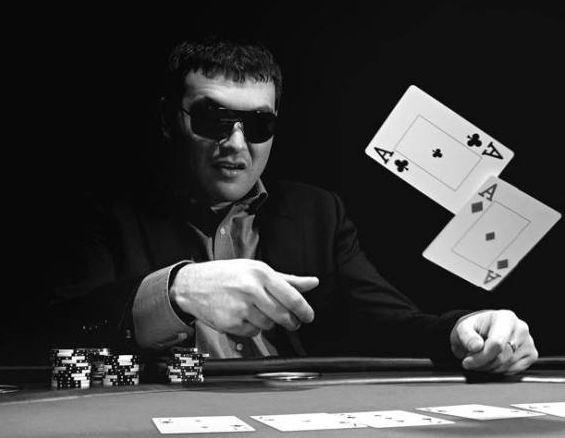
Everything comes to an end.
But poker is addictive, and also has a significant drawback - it does not allow you to experience satisfaction. Some players find him in an ever-present challenge, while others feel dissatisfied. Also, one of my biggest critics of the poker community is that when I looked around, I saw a lot of smart and talented people who were just playing cards instead of making their mark on life and creating something that was really useful and useful to society. This was one of the main reasons why I decided to end my poker career and start a new phase in my life.
In addition to Michael’s story, another professional poker player, Chris Sparks, decided to sum up the positives and negatives of the profession.
Pros of poker
Money – a very small percentage of players make substantial money (enough to make them world-renowned professionals), and it’s almost impossible to get rich in modern games. Your options are quite limited compared to other professions, but with the help of poker you can ensure a comfortable existence.
Autonomy – Only you decide when, how and where to play. At the end of the day, you are responsible to yourself. For most, the lack of structure can be a disaster, but for self-confident and purposeful people, it empowers them.
Flexibility: Play when you want to. Sometimes, when things are going well, I can play for days at a time. If I am unlucky or simply uninspired, I can leave the game and, for example, fly to another country for a weekend.
Challenge – You play to live, which in itself is amazing. I was very passionate about poker and loved the competitive aspect. Many successful people talk about the need to love their job, and with poker, that was true. I rarely felt like poker was a job.
Cons of poker
Stress – I think you can imagine how stressful it is to win and lose when large sums of money are involved. When you play online at multiple tables, you’re making more than 1,000 hands per hour, meaning you’re manipulating enough money. Add to this the fact that short-term results are heavily influenced by luck. There are many balding 20-year-old players in poker.
The difference is that you’re always very close to the other players (I’ve only won 52 percent of my sessions in my career), so it’s very difficult to judge how you play. In my practice, there was a three-month period in which I lost quite a lot of money, and my friends – even more.
Balance – There is no end to the working day in poker and it can consume your entire life if you allow it. Extreme levels of concentration and discipline are necessary to achieve any level of success, as one bad decision can destroy hundreds of optimal ones. Therefore, 8 hours of playing at multiple tables online is more intense and stressful than a regular working day. No wonder I stopped being interested in other things in my life besides poker and it took a lot of effort to get my balance back.
Predators – Most of your winnings come from inept players, and the better you know how to hunt them, the more money you will make. You can also become a victim of a predator.
You don’t create anything—the lack of play to make a living. At the end of the day, you work to increase the number on the screen. You are useless to society and once you have attained a certain level of wealth, poker cannot satisfy you.
Cultural Acceptance – This area has advanced significantly due to the overexposure of poker on TV, but many people remain ignorant of poker as a profession. To avoid being condescending, I often omit the topic of poker when dealing with new people.
Most successful poker players have similar entrepreneurial activities and always have something on the side. However, a large number of professionals have never worked in any other job, and many have even dropped out of college for poker. And when fortune turns away from them, they find themselves at a broken trough without any spare options.
These few stories confirm that you can make a profession out of poker and make money for your life, but there is a very fine line here that can turn success into a complete failure.
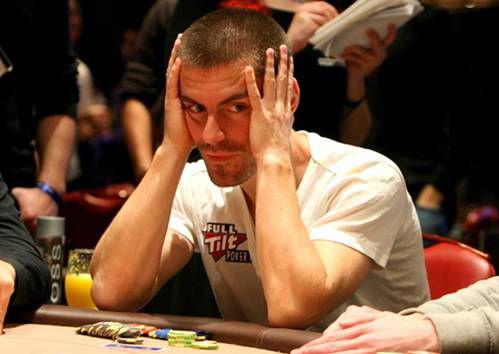
The answer is professional poker player Michael Shinzaki.
Playing poker is like a rollercoaster.
I played poker professionally for about 7 years. Of course, that’s not the only thing I’ve been doing all these years. During that time, I earned a bachelor’s degree, traveled to 45 countries, worked on my book, consulted several online startups, but poker has always been a major source of income. At that time, I experienced many ups and downs, both materially and morally. Poker has helped me get a lot of life experience in a fairly short period of time, including quite impractical moments for a 20-year-old.
When money begins to fall into your hands, everything seems possible.
I have seen the emotions and feelings of the players change at the poker table. I have often noticed how at different times I myself was in the seventh heaven of happiness, then in complete despondency. I saw tears of joy, and I also saw people on the brink of poverty start paying six-figure sums in taxes. I've seen people collapse and go into huge debt. Playing poker is like a roller coaster. It makes you experience both excitement and depression. Poker shows off the best and worst in every player at the table.

Poker is a strange profession
This is similar to the process of turning water into wine. There's no set salary here, you can't just successfully get an interview and get off to work on Monday. You will need a huge amount of work (some foundation) to at least try to turn this activity into a source of income.
A novice poker player can be unsuccessful for a long time (or even remain so forever) until he makes some progress. The level of difficulty of the game is also very variable, and this process does not always have a time dependence. You can earn a year’s worth in just a few hours (I’ve done it many times), or you can play a month and stay in the red (and this has happened to me many times).
At first, it was just a game.
When I started playing poker, I didn’t think about making it a profession. The game is meant to be social and when I was 18 it was very interesting and exciting. Poker is intriguing. I enjoyed the competition and creativity I needed in the game. It is like polymath or chess, but with additional elements. I loved the sense of celebration, I loved intellectual games. I even loved moments of despair when you feel stuck and spend hours thinking about strategy. For me, it was akin to athletics competitions, only without physical exertion.
Next, more.
Eventually, after a series of losses that forced me to play at the lowest stakes online, I began to analyze my mistakes and improve my playing skills. I started reading poker strategy books, watching games on ESPN to see where, when and why I was losing. You may think of yourself as a genius, but for every such genius, there are thousands of other players discussing the strategy of the game for 10 hours a day.
In poker you have to constantly adapt. You can’t get a patent and then just make a profit for the rest of your life. Remember, when money is at stake, your adversaries begin to evolve very quickly.
It takes time.
After a few $100 bets from my dad’s credit card and many sleepless nights at the game, I suddenly realized I was making progress.
Over time, you begin to notice what worked and what didn’t, pay attention to the game and tactics of your opponents, identify repetitive situations and distinguish between the approaches in each player’s game.
Poker is not always seen as a reality.
Sometimes it seems like a loophole that most people around you don’t notice.
I made my first six-figure sum in a year when I was 19 and at 21 I made that much in one day.
Some people never get half of it in a year. So what did I do about it? Just practiced playing cards. In my previous job at Baskin Robbins, I made $6.75 a day. And all of a sudden, I found myself in a whirlwind of events around the world, meeting interesting people, staying in expensive hotels, eating in cool restaurants, and buying everything I could want. This activity allowed me to travel. And most importantly, I had the opportunity and time to do things that I enjoyed, including blogging, sports, and spending enough time with loved ones and family.

Everything comes to an end.
But poker is addictive, and also has a significant drawback - it does not allow you to experience satisfaction. Some players find him in an ever-present challenge, while others feel dissatisfied. Also, one of my biggest critics of the poker community is that when I looked around, I saw a lot of smart and talented people who were just playing cards instead of making their mark on life and creating something that was really useful and useful to society. This was one of the main reasons why I decided to end my poker career and start a new phase in my life.
In addition to Michael’s story, another professional poker player, Chris Sparks, decided to sum up the positives and negatives of the profession.
Pros of poker
Money – a very small percentage of players make substantial money (enough to make them world-renowned professionals), and it’s almost impossible to get rich in modern games. Your options are quite limited compared to other professions, but with the help of poker you can ensure a comfortable existence.
Autonomy – Only you decide when, how and where to play. At the end of the day, you are responsible to yourself. For most, the lack of structure can be a disaster, but for self-confident and purposeful people, it empowers them.
Flexibility: Play when you want to. Sometimes, when things are going well, I can play for days at a time. If I am unlucky or simply uninspired, I can leave the game and, for example, fly to another country for a weekend.
Challenge – You play to live, which in itself is amazing. I was very passionate about poker and loved the competitive aspect. Many successful people talk about the need to love their job, and with poker, that was true. I rarely felt like poker was a job.
Cons of poker
Stress – I think you can imagine how stressful it is to win and lose when large sums of money are involved. When you play online at multiple tables, you’re making more than 1,000 hands per hour, meaning you’re manipulating enough money. Add to this the fact that short-term results are heavily influenced by luck. There are many balding 20-year-old players in poker.
The difference is that you’re always very close to the other players (I’ve only won 52 percent of my sessions in my career), so it’s very difficult to judge how you play. In my practice, there was a three-month period in which I lost quite a lot of money, and my friends – even more.
Balance – There is no end to the working day in poker and it can consume your entire life if you allow it. Extreme levels of concentration and discipline are necessary to achieve any level of success, as one bad decision can destroy hundreds of optimal ones. Therefore, 8 hours of playing at multiple tables online is more intense and stressful than a regular working day. No wonder I stopped being interested in other things in my life besides poker and it took a lot of effort to get my balance back.
Predators – Most of your winnings come from inept players, and the better you know how to hunt them, the more money you will make. You can also become a victim of a predator.
You don’t create anything—the lack of play to make a living. At the end of the day, you work to increase the number on the screen. You are useless to society and once you have attained a certain level of wealth, poker cannot satisfy you.
Cultural Acceptance – This area has advanced significantly due to the overexposure of poker on TV, but many people remain ignorant of poker as a profession. To avoid being condescending, I often omit the topic of poker when dealing with new people.
Most successful poker players have similar entrepreneurial activities and always have something on the side. However, a large number of professionals have never worked in any other job, and many have even dropped out of college for poker. And when fortune turns away from them, they find themselves at a broken trough without any spare options.
These few stories confirm that you can make a profession out of poker and make money for your life, but there is a very fine line here that can turn success into a complete failure.

